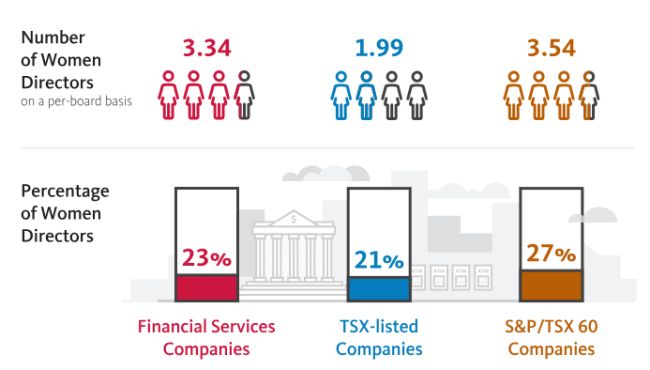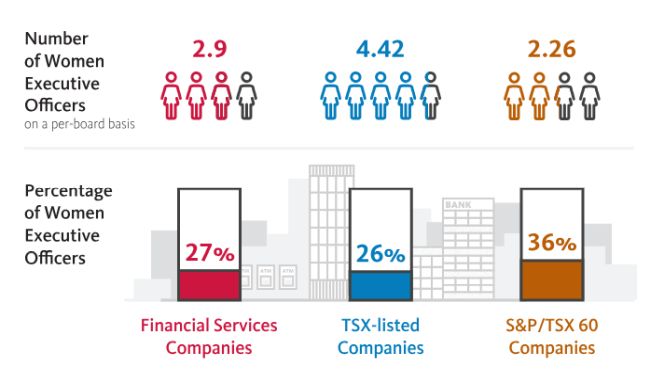A lack of diversity in the financial services industry can be largely attributed to the lasting effects of severely outdated social norms. As a result of shifting demographics and growing demands from customers, employees, investors and regulators, more and more financial institutions are seeing diversity as a business imperative. Changing demographics make it necessary to attract and retain diverse talent. As well, a growing body of research is pointing to consumers taking their business to organizations with a demonstrated commitment to diversity and inclusion. Regulators continue to introduce guidelines and requirements for increased diversity in business operations.
Several financial institutions have made considerable progress on their diversity journey. In 2023, Scotiabank, RBC, TD Bank and CIBC were all recognized as being among Canada's Best Diversity Employers while RBC, Bank of Nova Scotia, TD Bank and BMO were ranked in the top 25 of Refinitiv's Global Diversity and Inclusion Index Top 100 for 2023 [PDF]
The trend towards hybrid and flexible work has provided greater opportunities for women with family responsibilities at home. A recent survey in the U.S. shows that two out of three banks are offering workers either full flexibility or some sort of hybrid-work arrangement. The survey findings also indicate that the financial sector is one of the top five most flexible industries when it comes to hybrid and remote work. Some companies are offering mentorships to support professional development opportunities.
Latest diversity data
Data gathered for Osler's 2023 Diversity Disclosure Practices report reflect this dichotomy in women's advancement in the financial services sector.
For the sector as a whole, women made up 23% of executive officers in 2023 (mid-year results, based on 568 companies that disclosed). That's slightly higher than the overall average of 21% for all TSX-listed companies and slightly less than the 27% at S&P/TSX 60 companies but trailed four of the 12 other sectors tabulated. On a per-company basis, the number of women executive officers in the financial services industry at mid-year 2023 was 3.34, above the averages of 1.99 for all TSX-listed companies, and slightly below the 3.54 average for S&P/TSX 60 companies.
Breakdown of number and percentages of women directors in 2023

Looking at women's representation on financial services sector boards, Osler's data (mid-year 2023) showed that 27% of directors in the sector were women, compared to 25.9% in 2022 for TSX-listed firms overall and 35.9% on S&P/TSX 60 company boards. The number of women directors per board, meanwhile, was 2.9 compared to 4.42 for TSX-listed companies overall (632 companies disclosed) and 2.26 for S&P/TSX 60 companies (53 disclosed).
Breakdown of number and percentages of women executive officers in 2023

Trends since 2015
A review of Osler's survey results for 2015 through 2023 shows considerable improvement in women's representation on financial services boards from 12% to 27% — more than double. The number of women holding executive officer positions during this same timeframe has increased almost 10 percentage points – from 13.5% to 23%.
The biggest change over these years has been the growing number of financial institutions which have adopted diversity and inclusion programs and initiatives.
Best practices and sector leaders
Among individual companies, Osler's research identified a number of programs worthy of note. These include
- Bank of Nova Scotia – The bank has introduced a new employee allyship initiative that supports a culture of inclusion and belonging.
- Manulife Financial Corp. – To enhance its pool of diverse candidates, the company follows a formal process where all vacancies are posted internally and externally, and all executive search vendors must ensure their slate of candidates is diverse and includes a focus on women.
- Intact Financial Corporation – The company closely monitors compensation outcomes to assess pay equity and to ensure that women throughout the organization earn equivalent dollar for dollar earned by men.
The content of this article is intended to provide a general guide to the subject matter. Specialist advice should be sought about your specific circumstances.

